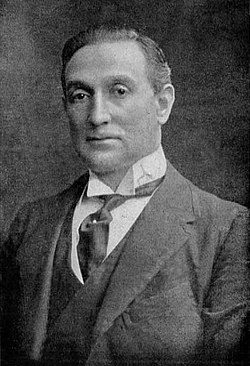Peerage titles

Marquessates
Earldoms
- Earl of Beaconsfield (extinct)
- Benjamin Disraeli, 1st Earl of Beaconsfield (converted out)
- Earl of Rosebery and Midlothian
- Harry Primrose, 6th Earl of Rosebery, 2nd Earl of Midlothian (Jewish mother)
- Earl of Harewood
- David Lascelles, 8th Earl of Harewood (Jewish mother)
Viscountcies
- Viscount Burnham (extinct)
- Viscount Bearsted [4]
- Marcus Samuel, 1st Viscount Bearsted
- Walter Samuel, 2nd Viscount Bearsted
- Marcus Samuel, 3rd Viscount Bearsted
- Peter Samuel, 4th Viscount Bearsted
- Nicholas Alan Samuel, 5th Viscount Bearsted
- Viscount Samuel [5]
Hereditary baronies
Extant
- Baron Rothschild [6]
- Baron Burnham
- Edward Levy-Lawson, 1st Baron Burnham
- Harry Levy-Lawson, 2nd Baron Burnham, created Viscount Burnham
- William Arnold Webster Levy-Lawson, 3rd Baron Burnham
- Edward Lawson, 4th Baron Burnham
- William Edward Harry Lawson, 5th Baron Burnham
- Hugh Lawson, 6th Baron Burnham
- Harry Frederick Alan Lawson, 7th Baron Burnham
- Baron Swaythling [7]
- Samuel Montagu, 1st Baron Swaythling
- Louis Montagu, 2nd Baron Swaythling
- Stuart Albert Montagu, 3rd Baron Swaythling
- David Montagu, 4th Baron Swaythling
- Charles Montagu, 5th Baron Swaythling
- Baron Mancroft [8]
- Baron Nathan
- Harry Nathan, 1st Baron Nathan
- Roger Nathan, 2nd Baron Nathan
- Rupert Harry Bernard Nathan, 3rd Baron Nathan
- Baron Haden-Guest
- Baron Silkin [9]
- Baron Marks of Broughton
- Simon Marks, 1st Baron Marks of Broughton
- Michael Marks, 2nd Baron Marks of Broughton
- Simon Richard Marks, 3rd Baron Marks of Broughton
Extinct
- Baron Eardley
- Sampson Eardley, 1st Baron Eardley (Jewish father)
- Baron Herschell
- Farrer Herschell, 1st Baron Herschell (Jewish father who converted out)
- Richard Herschell, 2nd Baron Herschell
- Rognvald Herschell, 3rd Baron Herschell
- Baron Wandsworth [10]
- Baron Pirbright
- Baron Michelham
- Herbert Stern, 1st Baron Michelham
- Herman Alfred Stern, 2nd Baron Michelham
- Baron Jessel
- Baron Duveen [2]
- Baron Melchett
- Baron Hore-Belisha
- Baron Conesford
- Baron Cohen of Birkenhead [11]
Life peerages

- David Alliance, Baron Alliance
- Alexander Bernstein, Baron Bernstein of Craigweil
- Alma Birk, Baroness Birk [12]
- Leon Brittan, Baron Brittan of Spennithorne
- Lionel Cohen, Baron Cohen
- Bernard Delfont, Baron Delfont
- Terence Etherton, Baron Etherton
- Andrew Feldman, Baron Feldman of Elstree
- Stanley Fink, Baron Fink
- Daniel Finkelstein, Baron Finkelstein
- David Freud, Baron Freud
- Dora Gaitskell, Baroness Gaitskell
- Robert Gavron, Baron Gavron
- Dean Godson, Baron Godson
- Peter Goldsmith, Baron Goldsmith
- William Goodhart, Baron Goodhart
- Arnold Goodman, Baron Goodman
- Anthony Grabiner, Baron Grabiner
- Lew Grade, Baron Grade
- Michael Grade, Baron Grade of Yarmouth (Jewish father) [13]
- Susan Greenfield, Baroness Greenfield
- Richard Harrington, Baron Harrington of Watford
- Richard Hermer, Baron Hermer
- Michael Howard, Baron Howard of Lympne
- Sydney Jacobson, Baron Jacobson
- Immanuel Jakobovits, Baron Jakobovits [14]
- Greville Janner, Baron Janner of Braunstone
- Keith Joseph, Baron Joseph
- Lawrence Kadoorie, Baron Kadoorie [15]
- Nigel Lawson, Baron Lawson of Blaby
- Michael Levy, Baron Levy
- Peter Mandelson, Baron Mandelson (Jewish father)
- Yehudi Menuhin, Baron Menuhin
- Claus Moser, Baron Moser [16]
- David Neuberger, Baron Neuberger of Abbotsbury
- Julia Neuberger, Baroness Neuberger
- Monroe Palmer, Baron Palmer of Childs Hill
- David Pannick, Baron Pannick [17]
- Maurice Peston, Baron Peston of Mile End
- Beatrice Plummer, Baroness Plummer
- David Puttnam, Baron Puttnam (Jewish mother) [18]
- Maurice Saatchi, Baron Saatchi
- Jonathan Sacks, Baron Sacks
- Cyril Salmon, Baron Salmon [19]
- James Sassoon, Baron Sassoon
- Samuel Segal, Baron Segal
- Beatrice Serota, Baroness Serota
- Emanuel Shinwell, Baron Shinwell
- Israel Sieff, Baron Sieff
- Marcus Sieff, Baron Sieff of Brimpton
- Samuel Silkin, Baron Silkin of Dulwich
- Alan Sugar, Baron Sugar
- David Triesman, Baron Triesman
- Leslie Turnberg, Baron Turnberg
- Gordon Wasserman, Baron Wasserman
- Arnold Weinstock, Baron Weinstock
- Robert Winston, Baron Winston
- David Wolfson, Baron Wolfson of Sunningdale
- David Wolfson, Baron Wolfson of Tredegar
- Leonard Wolfson, Baron Wolfson [20]
- Simon Wolfson, Baron Wolfson of Aspley Guise
- Harry Woolf, Baron Woolf
- David Young, Baron Young of Graffham
- Solly Zuckerman, Baron Zuckerman
